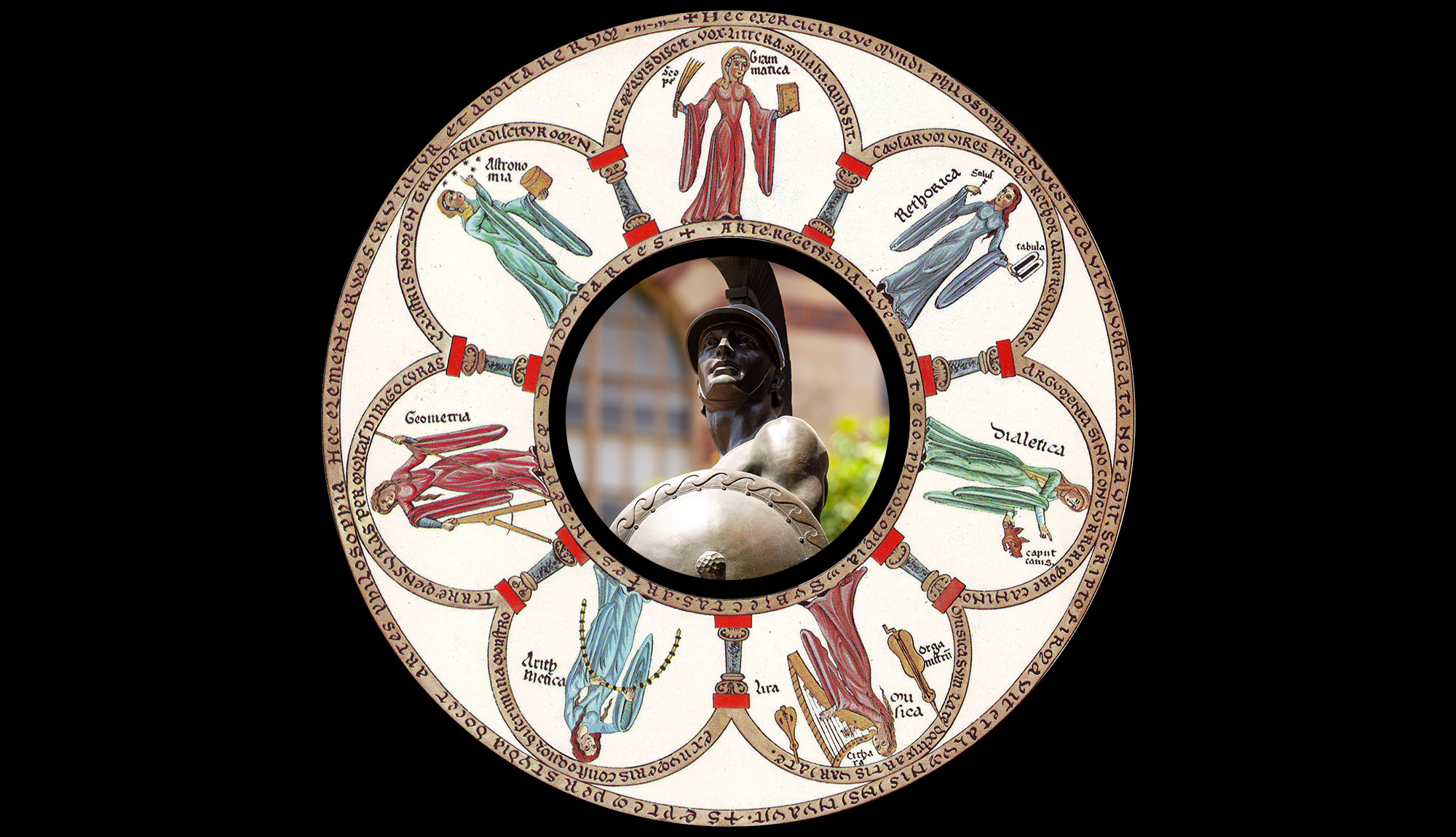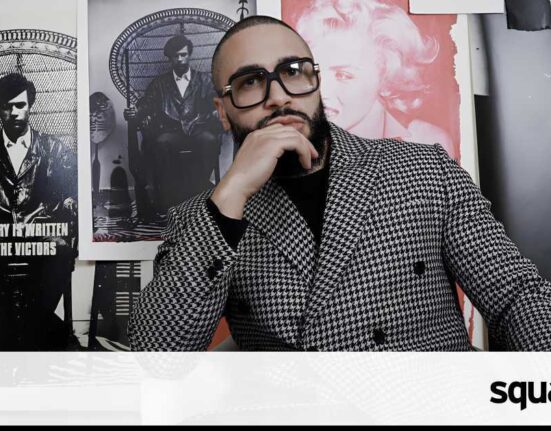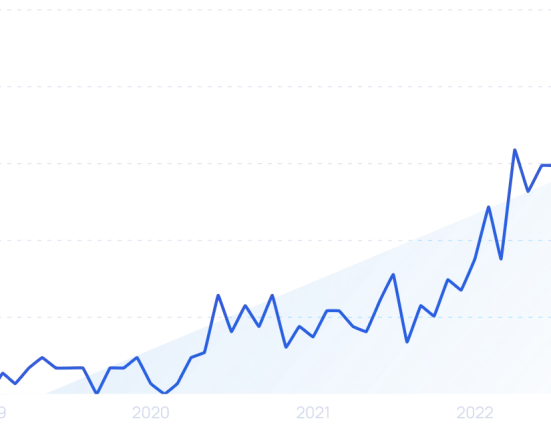For long-term career success, research suggests students should take a cue from ancient Athenians: study the liberal arts.
A study from Georgetown University’s Center on Education and the Workforce found that degrees from the most selective liberal arts colleges yield a long-term return on investment that’s comparable to degrees from comprehensive, top-tier research universities.
The findings aren’t surprising to Goldman Sachs Managing Director Matt Weir, who graduated in 2003 from the USC Dornsife College of Letters, Arts and Sciences — a liberal arts college within a top-tier research university—with an economics degree.
“If I look back historically at the CEOs of Goldman, I can’t think of any who majored in business or finance as undergrads. They majored in political science, English, history or economics. Our current CEO is a Hamilton College political science alum,” says Weir.
The term “liberal” in liberal arts — which has no association with a political persuasion — stretches back to the democracy of ancient Athens, where seven “arts” were considered essential learning for a “free citizen,” or liberalis.These arts included disciplines as diverse as geometry, rhetoric and music.
Today, the liberal arts umbrella is vast, including disciplines in the humanities, natural sciences and social sciences such as writing, chemistry, spatial sciences, sociology and much more. This diversity of degrees — and their varying career prospects — means that generalizations about liberal arts majors are unreliable.
According to Research.com, the undergraduate degree that ranks fifth highest in earnings is a liberal arts degree — physics. Psychology makes the eighth spot and economics the 12th. It’s perhaps unsurprising then that economics and psychology are the two most popular majors at USC Dornsife. Economics has another appeal: It’s also the mostcommon undergraduate degree held by the world’s billionaires.
Undergraduate degrees in liberal arts are often stepping stones to lucrative careers that require advanced degrees. For instance, a majority of physicians majored first in a liberal arts degree, such as biological sciences, before heading to medical school. And biochemists, who make a median salary topping $100,000 annually, usually start with an undergraduate biochemistry degree.
Plenty of other liberal arts degrees pack a punch. The degree held by more United States presidents than any other? History. And while one might assume that tech companies are primarily interested in engineers, they’re increasingly eager to add graduates with degrees in subjects like English or philosophy to their payroll.
Enviable Skills in the Age of AI and Interactive Media
“The uniquely human skills polished by a well-rounded liberal arts education will make job candidates more competitive for all roles in the digital economy,” says Intuit’s Chief Product Officer Alex Chriss in a U.S. News & World Report article.
In the rapidly evolving field of artificial intelligence, graduates with humanities and social sciences degrees are proving indispensable. Their deep understanding of human culture, ethics and communication is critical for developing AI that is effective, ethically sound and culturally aware.
The same depth of understanding that makes humanities graduates invaluable in AI is in demand by interactive entertainment companies such as Sucker Punch Productions.
Known for character-driven action games like the hugely popular “Ghost of Tsushima,” set in feudal Japan, co-founder Brian Fleming, a physics major, says Sucker Punch needs employees who can help craft complex, historically accurate worlds with rich storylines. So, his team is always looking for people with backgrounds in history, creative writing and art. In fact, about three-quarters of his employees have a background in the liberal arts.
Leadership Through Liberal Arts
Sam Palmer, senior manager of human capital at K1 Investment Management, says that a liberal arts background can also be key to career advancement. He speaks from personal experience.
Palmer graduated from USC Dornsife in 2015 with a degree in international relations and global business and credits the program with helping him hone essential business skills for a global market, including problem-solving and working with people from diverse backgrounds.
“If you want to succeed in an executive position, that takes the kind of training you learn in the liberal arts,” he explains.
That’s because liberal arts colleges help students — whatever their major — develop a unique set of skills highly valued by employers. The Job Outlook 2023 Survey by the National Association of Colleges and Employers found that critical thinking and communication skills are the two most important competencies employers look for when recruiting. Problem-solving skills and the ability to work in a team are also ranked very highly.
Cross Discipline Learning: Key to Unlocking Potential
A key value of a liberal arts education is the opportunity to develop a breadth of knowledge and depth of understanding from courses outside a student’s major. USC Dornsife, for instance, offers more than 90 majors and 90 minors. Many courses blend wide-ranging fields of study, like POSC 449: “Political Psychology,” which examines how individual and social psychology impacts politics.
This interdisciplinary learning is a hallmark of a liberal arts education, fostering a well-rounded intellectual foundation valued by many industries.
In addition to his economics degree, Goldman Sachs executive Weir says he studied philosophy and art history, all of which equipped him with skills he’s still using two decades after graduation.
“Through philosophy, I learned the power of outlining a paper or book to truly understand it. That’s something I do constantly in my day job when I assess the rationale behind potential investment opportunities,” he explains. Philosophy also taught Weir how to think logically, which he says helped him become a much clearer thinker than he otherwise would have been.
Art history, on the other hand, allowed him to communicate ideas and make arguments using historically situated knowledge. “History is so much about placing yourself in the moment of that specific point in time,” says Weir. Financial markets are cyclical, he adds, which makes an understanding and appreciation of history critical to his line of work.
This capacity to contextualize history speaks to a broader value that can be found in the humanities: empathy. “The ability to put yourself in someone else’s shoes is one of the skills particularly common to those who study the humanities,” he says. “It’s a skill that’s vital in both the workplace and nearly every other facet of life.”
In bridging the gap between historical wisdom and modern innovation, liberal arts majors are not only finding their place but are shaping the future. It turns out that the ancient Athenians may have been onto something — studying the liberal arts isn’t just about understanding the past; it’s about building a versatile and robust foundation for the future.






